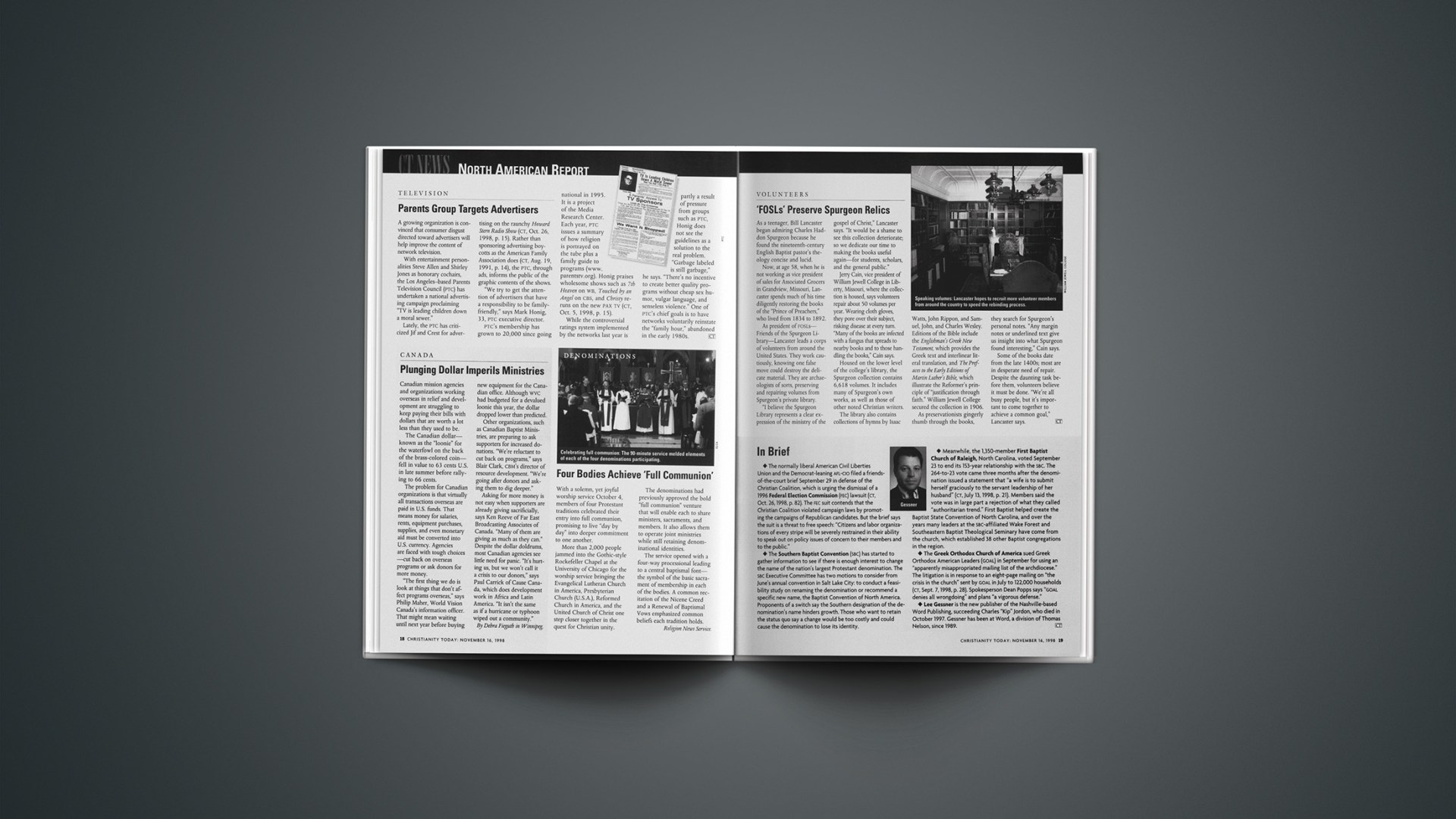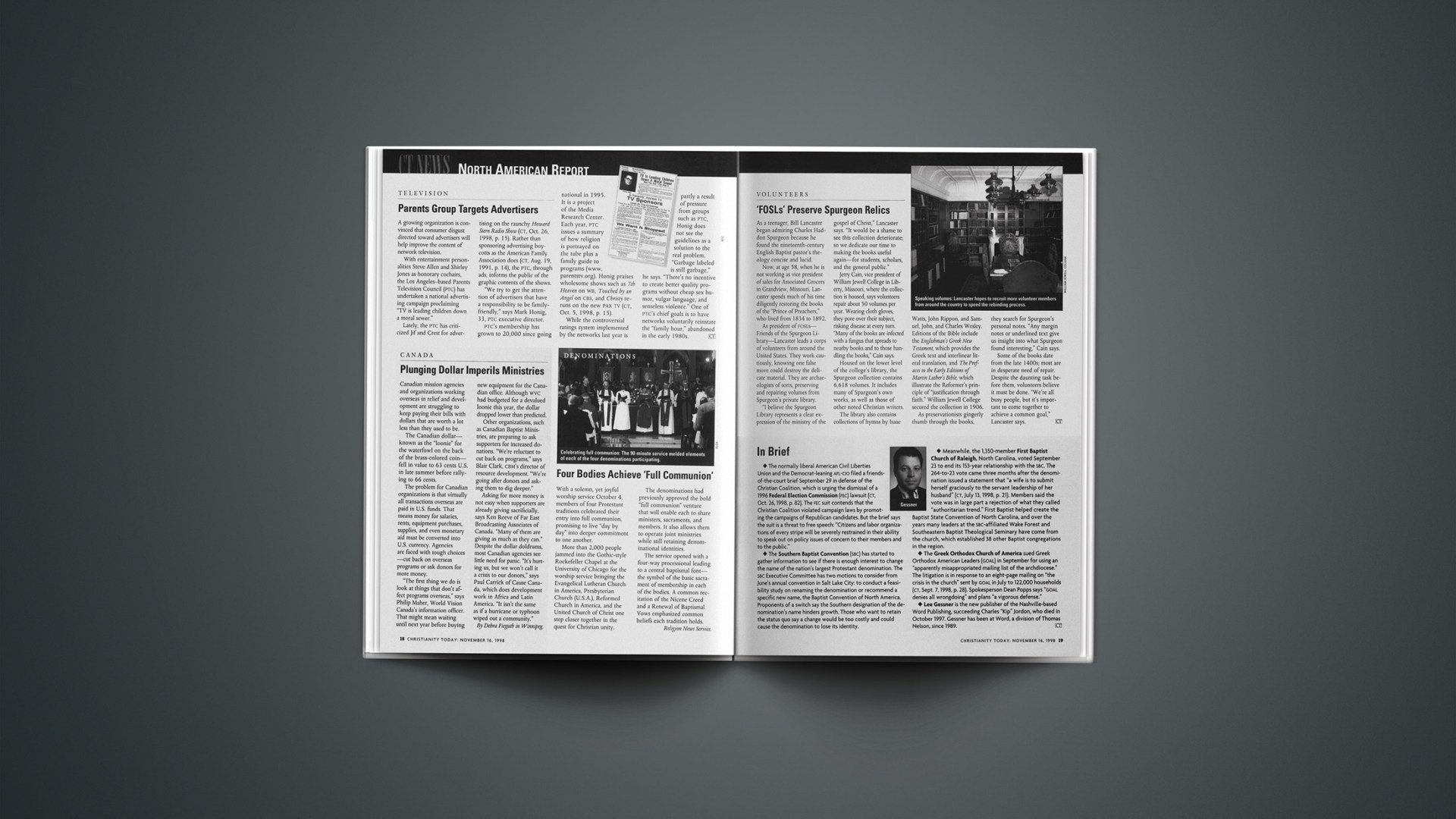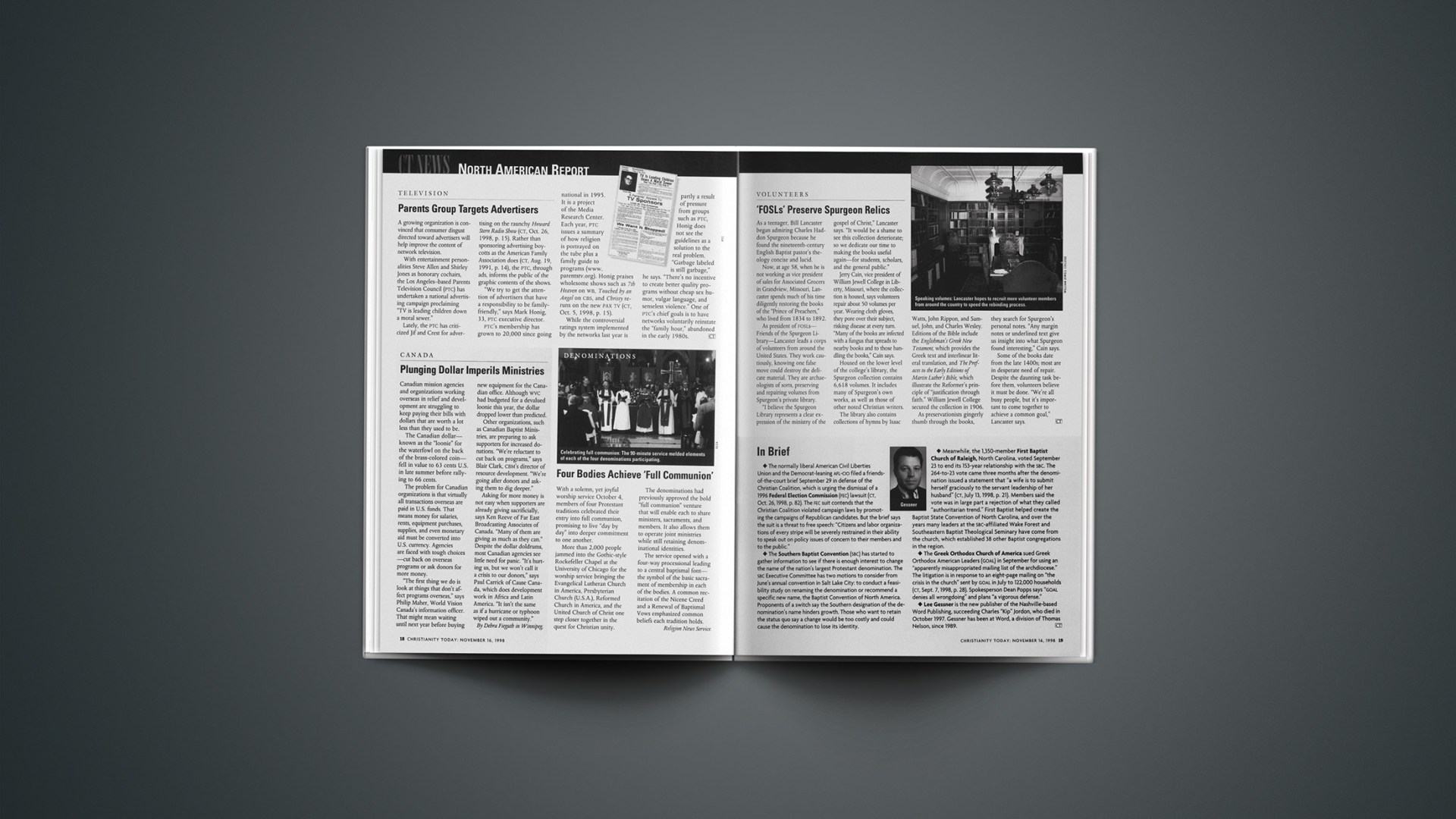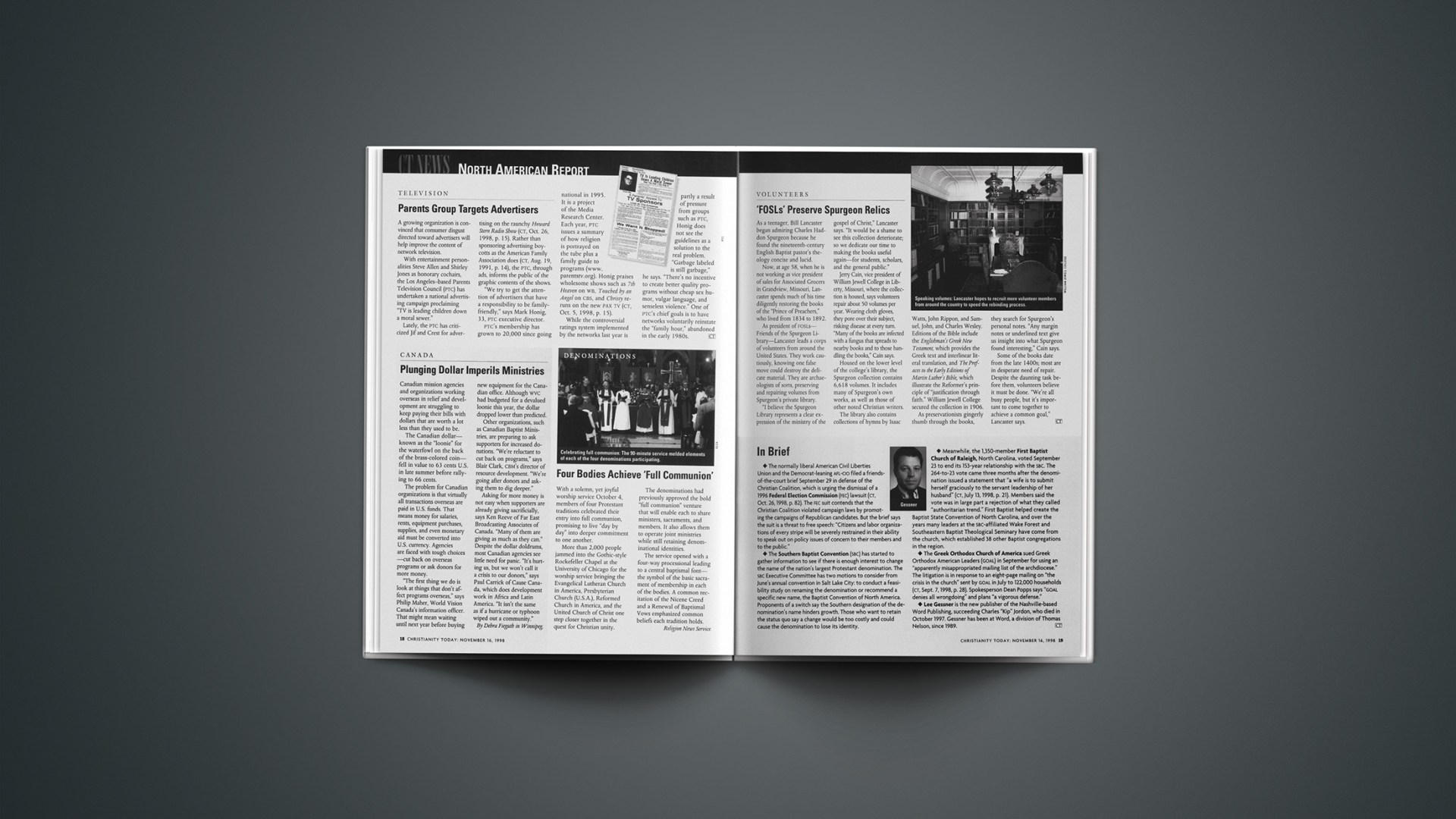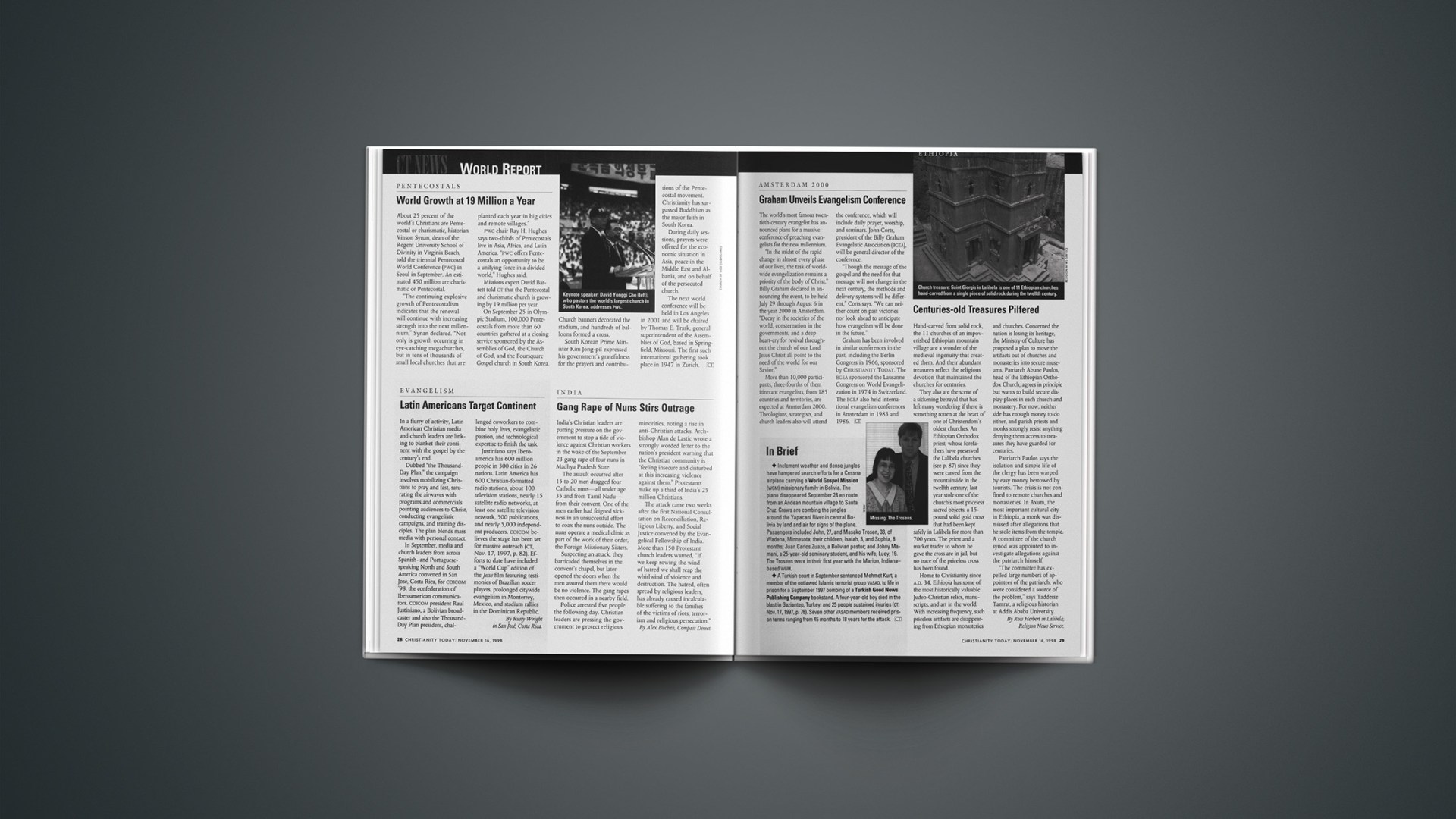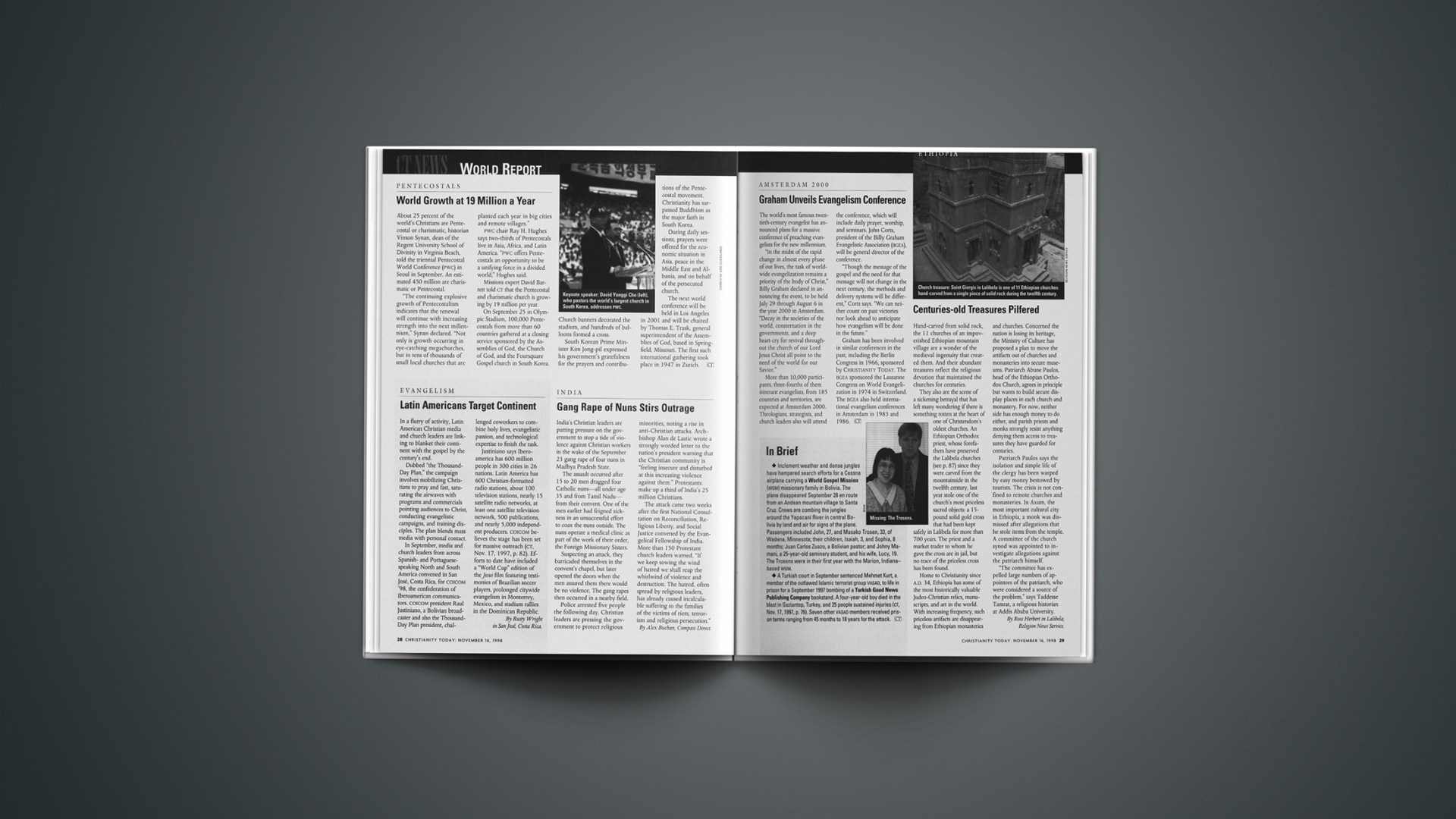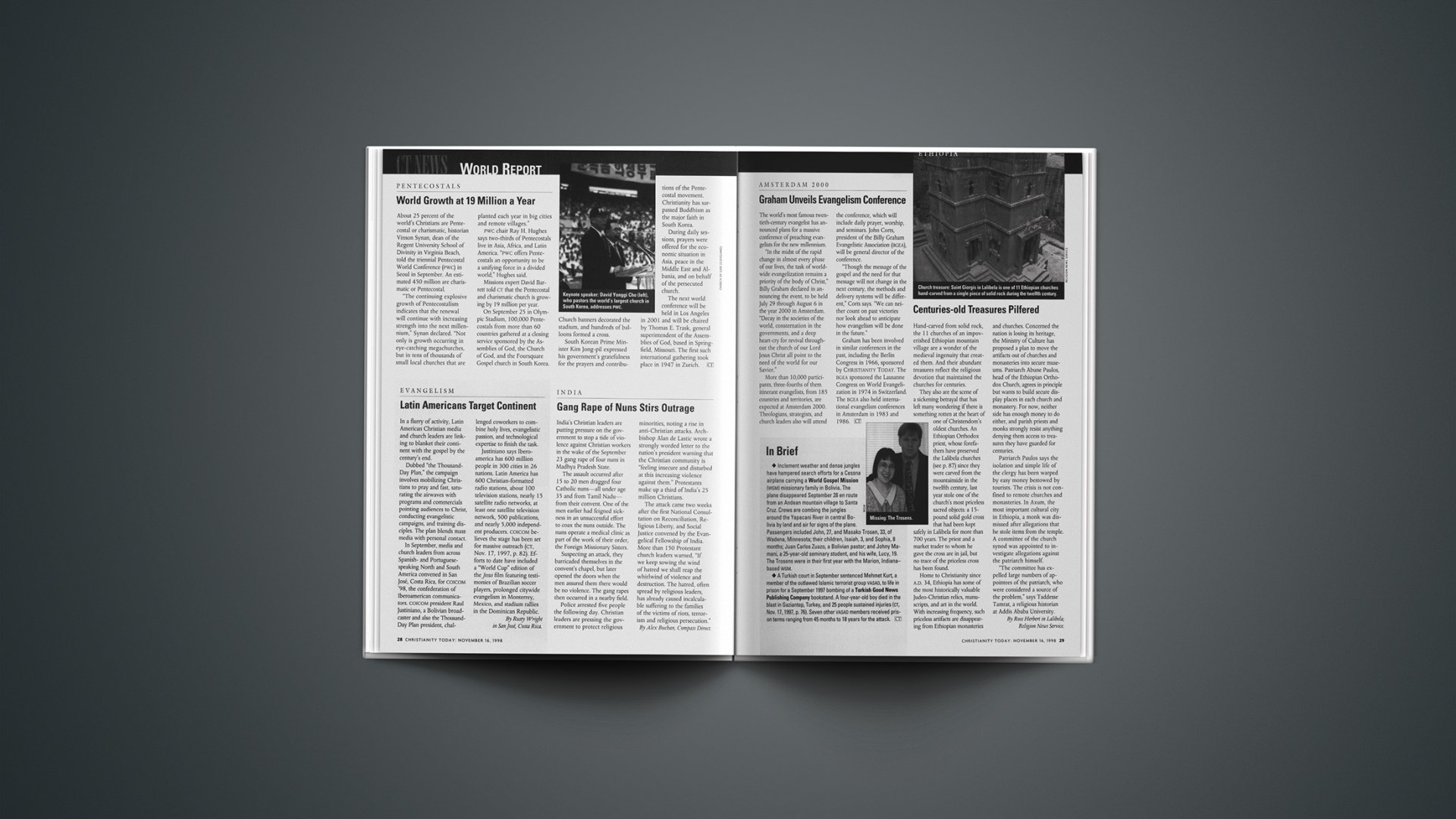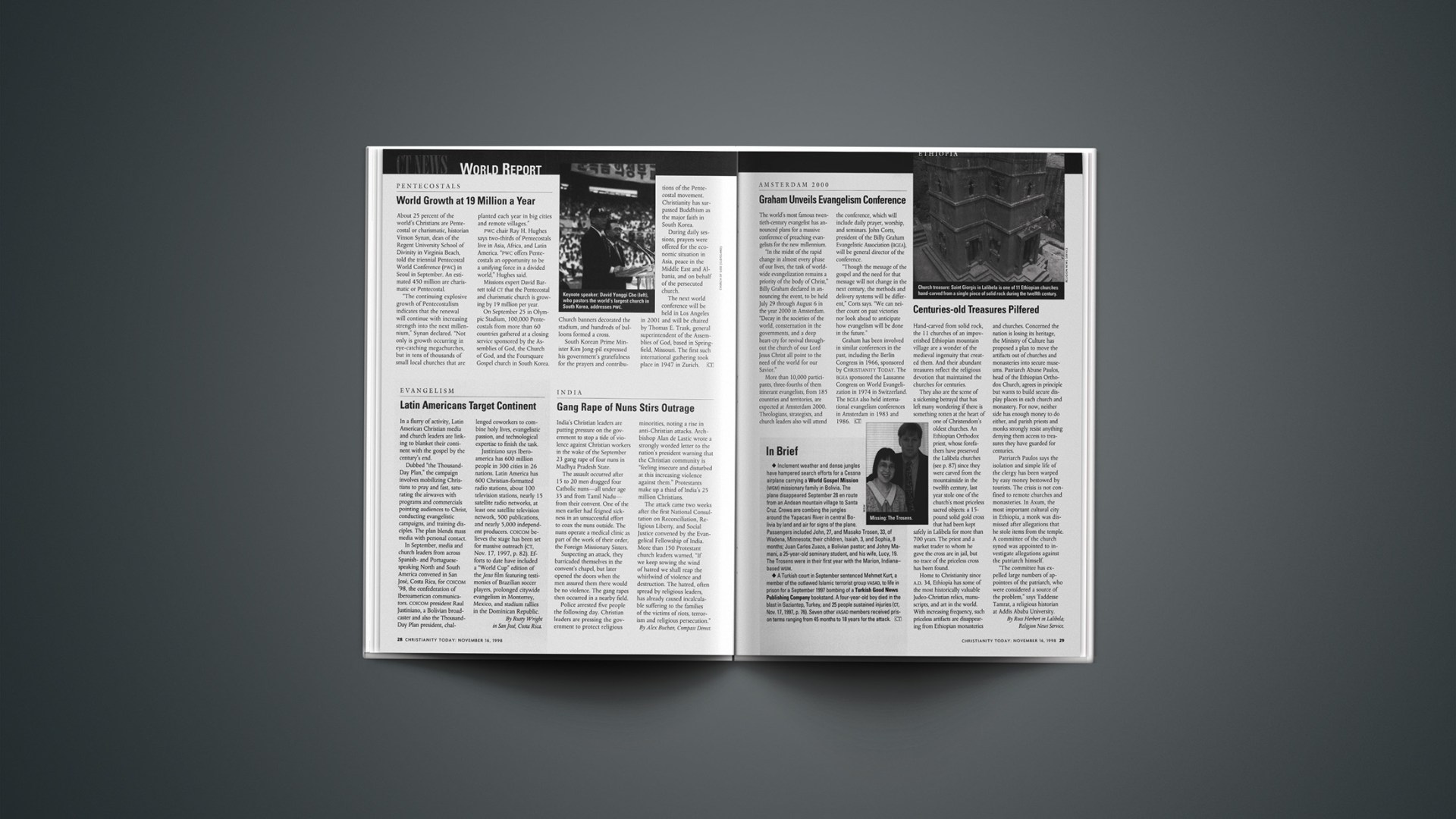A growing organization is convinced that consumer disgust directed toward advertisers will help improve the content of network television.
With entertainment personalities Steve Allen and Shirley Jones as honorary cochairs, the Los Angeles-based Parents Television Council (PTC) has undertaken a national advertising campaign proclaiming “TV is leading children down a moral sewer.”
Lately, the PTC has criticized Jif and Crest for advertising on the raunchy Howard Stern Radio Show (CT, Oct. 26, 1998, p. 15). Rather than sponsoring advertising boycotts as the American Family Association does (CT, Aug. 19, 1991, p. 14), the PTC, through ads, informs the public of the graphic contents of the shows.
“We try to get the attention of advertisers that have a responsibility to be family-friendly,” says Mark Honig, 33, PTC executive director.
PTC’s membership has grown to 20,000 since going national in 1995. It is a project of the Media Research Center. Each year, PTC issues a summary of how religion is portrayed on the tube plus a family guide to programs (www.parentstv.org). Honig praises wholesome shows such as 7th Heaven on WB, Touched by an Angel on CBS, and Christy reruns on the new PAX TV (CT, Oct. 5, 1998, p. 15).
While the controversial ratings system implemented by the networks last year is partly a result of pressure from groups such as PTC, Honig does not see the guidelines as a solution to the real problem. “Garbage labeled is still garbage,” he says. “There’s no incentive to create better quality programs without cheap sex humor, vulgar language, and senseless violence.” One of PTC’s chief goals is to have networks voluntarily reinstate the “family hour,” abandoned in the early 1980s.
Copyright © 1998 Christianity Today. Click for reprint information.

